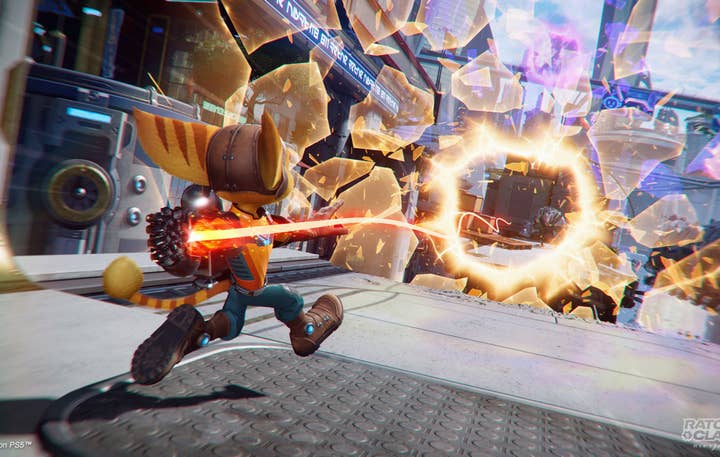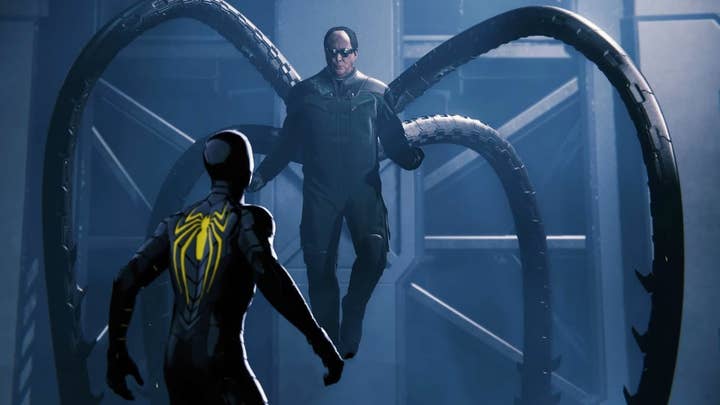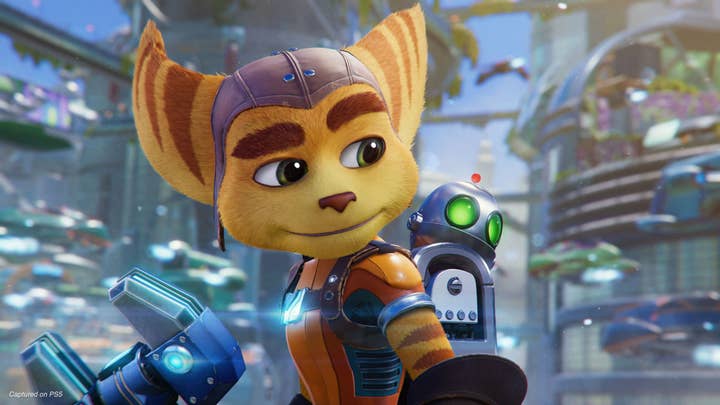Insomniac's Ted Price: Games studios must break the habit of brute-forcing through problems
Spider-Man studio boss spoke at Develop:Brighton about giving teams permission to fail and building a safer culture
Insomniac Games CEO Ted Price wants to see more developers being "creative within constraints" in order to end the cycle of crunch.
The pressures of games development, and the impact this has on staff, was one of many topics covered during his keynote interview at last week's Develop:Brighton conference.
The talk began with a whistle stop tour of Insomniac Games' history, in which Price described the Marvel partnership -- which led to Spider-Man, its Miles Morales follow-up, and now a full sequel and Wolverine game -- as a "watershed moment," adding that working with licensed IP was "never something we would have considered."
He also dubbed Sony's acquisition of his studio as "the biggest moment in our history," pointing to the many benefits it has brought, such as being able to collaborate closer with other first-party PlayStation developers.
After this, the conversation turned to the various wellbeing initiatives at the company, with Price emphasising the importance of mental health care.

"Achieving a balance between excellence and wellbeing is, at least in my opinion, a crucial goal," he said.
However, the games industry has shown many times that an excellent product can come at the cost of wellbeing. Tales of crunch -- especially at AAA studios, including PlayStation's own Naughty Dog -- stretch back decades. Insomniac reportedly managed to avoid crunching on this year's acclaimed PlayStation5 exclusive Ratchet & Clank, but with this very much the exception rather than rule, how can studios ensure excellence does not impact wellbeing?
"It's a tricky one," Price admitted. "I do think they are naturally opposed sometimes."
His main suggestion was to set goals as a studio. Price gave two examples of Insomniac's goals, the first being to "increase wellbeing and reduce burnout."
One of the things the company does to accomplish this is issue regular wellbeing surveys to staff, which have in turn highlighted concerns over planning and scope. As a result, Insomniac built more planning meetings into its process, giving staff a chance to plan what they want to achieve every few weeks.
"It sounds like a no-brainer but it's really hard to do when you're moving at a million miles an hour during production," he said. "But it's effective."
Insomniac also allocated certain hours where project leaders would be available to answer questions or address any concerns, which can help identify problems with scope.
Another Insomniac goal is to "support sustainable productions." By way of example, Price pointed to how teams like visual effects, audio and lighting, which work across multiple projects, should not be stretched too thin.
"It's also about committing to not throwing people off of one project to finish another, which I think every [multi-project] developer has done," he said. "But it's a commitment we're making, and we're making sure that we're avoiding this."
He added that it's hard to know which initiatives have worked and which haven't until long after they have been implemented, which is why Insomniac aims to gather feedback and share results -- including any failures -- with staff at regular intervals.
"When we all repeat the message, that it's okay to try new things that fail, it gets repeated and becomes part of the culture"
"With that in mind, one risk of being responsive and transparent is that pendulum swings can occur. It can be really easy to overcorrect when identifying problems and trying to attack them. That's one of the reasons we need to constantly get feedback from the team."
One common problem at games studios is feature creep, as the scope of a project expands with more and more ideas from the team. This in itself can cause periods of crunch as developers desperately try to cram everything planned into the final product. It presents studios with the hard choice between what some may see as an inferior product and keeping employees healthy.
"We face those choices all the time in the games industry," he said. "I think the default is to brute force the problem -- in order words, to throw money or people at it. But that can actually cause more chaos and affect wellbeing, which goes against that balance. The harder and, in my opinion, more effective solution is to be more creative within constraints."
He suggests developers should look at the features they're trying to make and consider the time and resources they have. If they have enough, it's an opportunity to get creative, dropping any preconceived notions of what the feature should be or what players want. It's a chance to do something different.
"This process is the ideal. Does it happen all the time? Absolutely not. In the stress of hectic production, we often feel we can't take our foot off the gas pedal -- but that's often what it takes. The team needs to have permission to pause and come up with a better way, instead of bulldozing through the problems and causing potential health problems."

A prime example he offers is the final confrontation between Spider-Man and Doc Ock in Insomniac's seminal 2018 game.
"Originally, we were going to have a boss battle that took you all over New York City, and it was way out of scope," Price explained. "The temptation is to just brute force it, put our heads down and run through the brick wall. But the team took a step back and thought about what was important to the players, and that was the breakdown of the relationship between Peter and his former mentor, Doctor Octavious.
"We can't be afraid of change. What we need to be afraid of is stagnation"
"They rethought the fight and realised they didn't need to destroy half of New York to pay off the relationship. In fact, it would have worked against what we were going for. As a result, the final battle is much more up close and personal, and has a far bigger emotional impact than planned -- and it fit within the time we had."
He added: "This permission to be creative within restraints needs to come from the leaders, who set the tone for the project. When we all repeat the message, that it's okay to try new things that fail, it gets repeated and becomes part of the culture. I see this in action, and it's incredible when it works, but it takes constant repetition because I think we default to old habits."
The keynote also discussed another well documented issue in the games industry: the lack of diversity. Price observed that, when he started in the '90s, an industry dominated by white men was making games representative of their audience. Since then, however, the audience for video games has changed significantly.
"Today, every culture, every race and every gender has embraced games, which is amazing," he says. "We need teams that are as diverse as our audience."
Price claims that Insomniac ensures there are diverse candidates to choose from at every stage of the interview process, and that the panel interviewing them also has diverse representation.
He also revealed that the studio is eliminating higher education as a requirement for "almost all of [its] roles," adding: "This means if someone can't afford to obtain a university degree, experience is a valid substitute."

Diversity is often discussed alongside company culture, which Price observed will change with every person that leaves or joins a studio.
"We can't be afraid of change," he said. "What we need to be afraid of is stagnation. In games development, we're making new things all the time, we're trying and failing frequently, so we should be able to do the same thing with our culture. And we do try a lot of things, and they don't always work, but that's just a part of dealing with the pendulum swings at a company [of our size]."
"As game developers, our legacy is not just the games we make, but also the culture we create"
The keynote touched very briefly on the waves of abuse allegations that have emerged from the games industry over the past couple of years -- some of which were aimed at Insomniac.
On the subject generally, Price said: "I don't think any organisation is immune from toxic behaviour. We have a lot of work to do, as an industry and as individual companies, to ensure that every person feels safe. At Insomniac, we're not perfect. Creating a safe environment where people can speak up is absolutely key. What we've learned over the last couple of years is that we can do better in ensuring every single person clearly understands our policies and all of the resources that are available for support."
Among the examples he gave were the code of conduct that has been drawn up for all employees, the "clear and frequent education" on harassment policies, the 30-, 60-, and 90-day check-ins with those who make reports or complaints to ensure there has been no retaliation, and the introduction of third-party reporting options for those who don't want to go through company channels.
"The realisation I came to recently is it's really easy to take safety for granted," he said. "Our default as developers can be to just focus on games development and assume that everybody knows how to act responsibly. But as we've learned, efforts to keep any workplace safe and healthy is a never-ending task."
The conversation circled back to these subjects by the end, with Price offering more general thoughts in conclusion.
"Wellbeing, diversity and safety aren't just buzzwords," he said. "They're core to a successful and healthy society. For many of us, corporate culture bleeds into our lives. It can affect what we teach our kids, how we interact with our friends and how we participate in society. So how we talk about diversity, wellbeing, safety and other cultural topics within our company sets the tone for how things happen outside those companies.
"No company is perfect. All companies are made up of individual humans with their own ideas, beliefs and approaches, and this is the beauty of being part of this society and any organisation. Ultimately, I think when we embrace our differences and give each other the benefit of the doubt, we do make progress. I also believe that if we have the will to be introspective and tackle our cultural problems -- and we all have them -- then constantly problem solve and share what we've learned, we can make a positive lasting impact inside and outside of our industry.
"As game developers, our legacy is not just the games we make, but also the culture we create."

